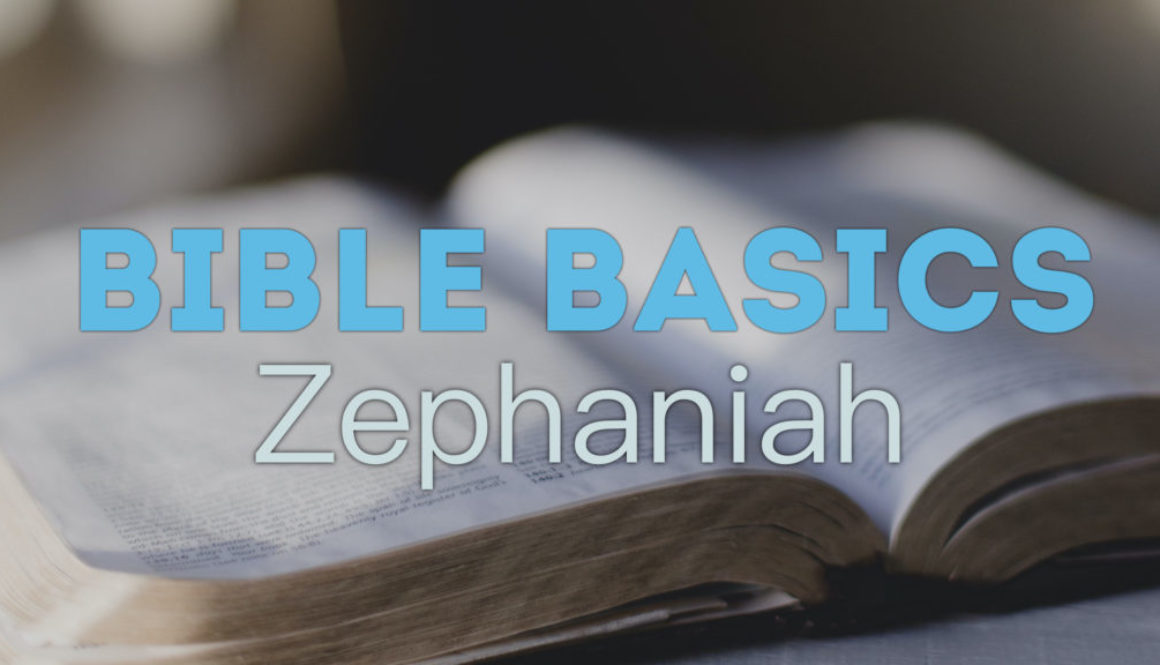Zephaniah
Author
The prophecies in the book were written by Zephaniah, whose name means “he whom the Lord protects or hides.” Some speculate that the book may have been compiled together at a later date. Some also believe that 3:14-20 were added during or post-exile. The entire book is written in the form of Hebrew poetry.
Zephaniah introduces himself with a genealogy, which is unusual for the Old Testament prophets. Some believe the reference is to show himself as the great-great-grandson of Judah’s King Hezekiah (1:1). Others who do not believe this to be the case argue that there is no historical evidence, or later Jewish tradition to confirm this. Some believe the prophet included the genealogy to show that he was a full-blooded Jewish man, due to the fact that his father’s name, “Cushi,” can be mistaken to mean he was Ethiopian.
Some scholars have tried to make a connection between the prophet Zephaniah and the priest named Zephaniah who was killed during the Babylonian invasions in 2 Kings 25:18–21 and Jeremiah 52:24–27. This connection, however, cannot be confirmed.
Date
The book’s introduction states that Zephaniah ministered during the reign of King Josiah (1:1), who ruled Judah from 640-609BC, and who sought to reform Judah back to a godly nation. This makes him a contemporary of Jeremiah, Nahum, and Habakkuk.
Due to the book’s beginning by condemning the sins of Judah and Jerusalem in “bowing down” to Assyria (1:5), which was the way of life under King Mannaseh, some believe that Zephanaiah’s prophetic ministry began before Josiah became King; though this is uncertain. His prophetic decrees include predicting the complete downfall of Nineveh (Assyria) to the Babylonians (2:13-15), which happened in 612BC, though, again, the exact date of his prediction is also uncertain.
Audience and Purpose
Zephaniah was writing to the southern kingdom of Judah, although his prophecies also involve the surrounding nations, declaring both God’s impending judgement (which would come in 587BC) and promising a hope for future restoration.
Major Themes
- Prophecy.
- God’s Sovereignty over the Nations. Zephaniah’s prophecy specifically includes reference to God’s judgement on people from all corners of the map. From Judah, Philisia (2:5-7) is to the west, Moab and Amon (2:8-11) are to the east, Cush (2:12) is to the south and Assyria (2:13-15) is to the north.
- Sin and Judgement. As do the prophets, Zephaniah speaks about “The Day of the Lord.”
- God’s Promise of Salvation and Restoration.
Key Scriptures
- 3:16-17 — “On that day it shall be said to Jerusalem: “Fear not, O Zion; let not your hands grow weak. The LORD your God is in your midst, a mighty one who will save; he will rejoice over you with gladness; he will quiet you by his love; he will exult over you with loud singing.”
Outline
- Zephaniah 1:1-3:8 — Prophecy Concerning The Day of the Lord
- Zephaniah 1:1-2:3 — Prophecy of God’s Judgment on Judah and Jerusalem
- Zephaniah 2:4-3:8 — Prophecy of God’s Judgement on the Nations
- Zephaniah 3:9–20 — Promise of Global Salvation
Gospel Summary
Though Zephaniah is one of the final voices declaring the downfall of Judah and Jerusalem to the Babylonians and “the Day of the Lord,” the gospel hope is found in the final section of his writing where the Lord promises many things to come after His judgement: He would purify the speech of all people to worship Him (3:9). He would bless those who “humble” themselves and trust Him (3:11-12). He would establish Himself as King over Israel (3:15); and He would gather His people from the exile where they were being sent, and establish them among the nations (3:20).
Though the immediate hope of the people would have been that these things would come after their time in exile in Babylon, we now know that these promises would not be fulfilled until the coming of Christ who offers salvation to those who humble themselves and trust Him as Savior. Those of us who believe in Him are now awaiting the fulfillment of these promises at Christ’ final return in power, as Messiah-King.
If you’re enjoying the content I produce, a little caffeine to keep me going would be appreciated!
© Anthony Scott Ingram 2021. All Rights Reserved.
Photo by Carolyn V on Unsplash
Unless otherwise indicated, all Scripture quotations are from The Holy Bible, English Standard Version®, copyright © 2001 by Crossway Bibles, a publishing ministry of Good News Publishers. Used by permission. All rights reserved.”
Please note that I do get a small kickback from Amazon for any purchases made using the links on this post. Should you choose to purchase from them, I just want to say thank you for further supporting my work in ministry!
